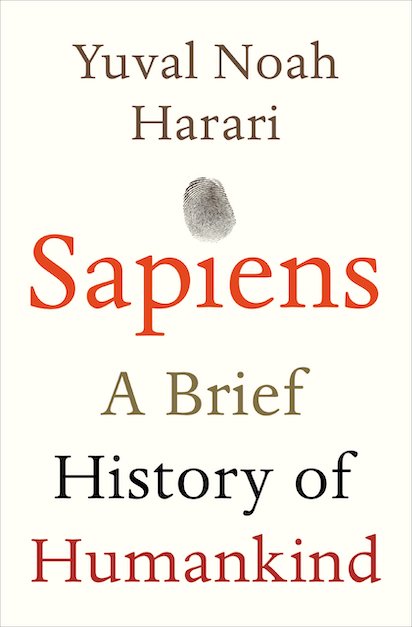Sapiens: A Brief History of Humankind is a non-fiction book by Yuval Noah Harari that delves into the history of Homo Sapiens, the only surviving species of the genus Homo. The book covers the entire span of human history, from the emergence of Homo sapiens in Africa 300,000 years ago to the present day. Harari provides an insightful and thought-provoking analysis of the human experience, touching upon topics such as the agricultural revolution, the rise of empires, the spread of religion, the impact of technology, and the future of humankind.
Part One: The Cognitive Revolution
The first part of Sapiens explores the cognitive revolution that occurred around 70,000 years ago. Harari argues that this revolution was the defining moment in human history, as it allowed Homo sapiens to develop language, culture, and the ability to imagine things that did not exist. This cognitive revolution also allowed humans to cooperate in larger groups, which in turn led to the creation of agriculture and the rise of civilizations. Harari argues that the cognitive revolution was a double-edged sword, as it gave humans the ability to create powerful myths and religions, but also led to the destruction of other species and the spread of violence.
Part Two: The Agricultural Revolution
The second part of Sapiens explores the agricultural revolution that occurred around 12,000 years ago. Harari argues that this revolution was a pivotal moment in human history, as it allowed humans to settle down and create permanent settlements. The agricultural revolution also led to the creation of social classes, the rise of empires, and the spread of disease. Harari argues that the agricultural revolution had both positive and negative consequences for humankind. On the one hand, it allowed humans to produce more food and support larger populations. On the other hand, it also led to the creation of hierarchical societies, in which a small elite controlled the vast majority of resources.

Part Three: The Unification of Humankind
The third part of Sapiens explores the unification of humankind that occurred over the last few thousand years. Harari argues that this unification was driven by the spread of religion, money, and empires. Religion allowed humans to create shared myths and beliefs, while money allowed them to trade with each other and build complex societies. Empires allowed humans to conquer other peoples and spread their cultures and technologies. Harari argues that the unification of humankind was a mixed blessing, as it led to the spread of ideas and technology, but also to the oppression and exploitation of other peoples.
Part Four: The Scientific Revolution
The fourth part of Sapiens explores the scientific revolution that occurred over the last few centuries. Harari argues that this revolution was a natural extension of the cognitive revolution, as it allowed humans to understand and manipulate the world around them. The scientific revolution also led to the creation of powerful technologies, such as the steam engine and the computer. Harari argues that the scientific revolution has had a profound impact on human history, as it has led to the creation of a global society and the potential for unlimited growth and progress.
Part Five: The Future of Humankind
The final part of Sapiens explores the future of humankind. Harari argues that humans are facing a number of challenges, including environmental destruction, nuclear war, and the potential for the creation of artificial intelligence that could surpass human intelligence. Harari argues that the key to solving these challenges is to develop a new set of myths and values that are grounded in science and reason, rather than religion and tradition. Harari concludes by arguing that the future of humankind is uncertain, but that it is up to humans to shape their own destiny.
Conclusion:
In conclusion, Sapiens: A Brief History of Humankind is a fascinating and thought-provoking exploration of human history. Harari provides a compelling narrative that challenges traditional views of human history and provides new insights into the origins and development of human civilization. By examining the cognitive, agricultural, and scientific revolutions, as well as the unification of humankind, Harari shows how humans have shaped the world around them and how they have been shaped by it.
Moreover, Harari’s analysis of the future of humankind is particularly insightful, as he highlights the challenges that humans face in the 21st century, such as climate change, nuclear war, and the rise of artificial intelligence. He argues that the key to overcoming these challenges is to develop a new set of values and myths that are grounded in science and reason.
Overall, Sapiens is a must-read for anyone interested in human history, philosophy, or the future of humanity. Harari’s writing is engaging and accessible, and his arguments are well-supported by evidence and research. By providing a broad perspective on human history, Sapiens invites readers to think critically about their place in the world and to consider the possibilities for the future of humanity.




